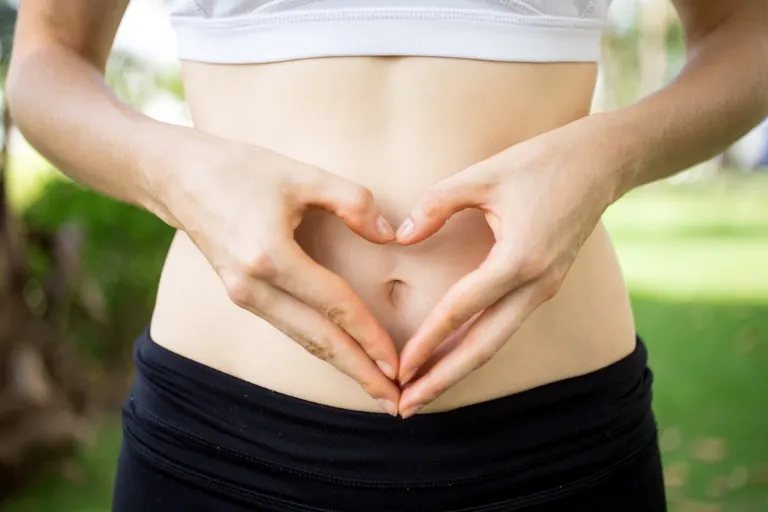Wichtige Punkte
- Postvirale Müdigkeit kann aufgrund von Entzündungen, Immunungleichgewicht und Darmstörungen anhalten.
- Virusinfektionen stören häufig Darmbakterien und beeinträchtigen Immunität und Energie.
- Spezifische Probiotika können dazu beitragen, das Gleichgewicht des Mikrobioms, die Entzündungsregulierung und die Darmintegrität zu unterstützen.
- Untersuchungen deuten darauf hin, dass bestimmte Stämme die Immunwege und die Erholung der Verdauung beeinflussen.
- Probiotika sind kein Heilmittel, können aber Teil einer umfassenderen Genesungsstrategie sein.
Wenn das Virus verschwindet, die Erschöpfung aber anhält
Für viele Menschen ist der schwierigste Teil der Genesung von einem Virus nicht das Fieber oder die Verstopfung —es ist das, was danach passiert. Wochen nachdem die Infektion abgeklungen ist, bleibt das Energieniveau niedrig, die Konzentration fühlt sich schwieriger an und die Verdauung kann sich schlecht anfühlen. Wissenschaftler erkennen diese anhaltende Müdigkeit nun als Post-virale Müdigkeit, ein Muster, das mit einer Überaktivierung des Immunsystems und einem Ungleichgewicht im Darm zusammenhängt.
Forscher schätzen, dass Virusinfektionen Darmbakterien bis zu stören können 30–60% der Menschen Genesung von Atemwegsinfektionen [1]. Diese Störung —bekannt als Dysbiose— kann alles beeinflussen, von Entzündungen bis hin zur Nährstoffaufnahme. Hier haben Probiotika Aufmerksamkeit erregt, nicht als Allheilmittel, sondern als Mittel zur Wiederherstellung des physiologischen Gleichgewichts.
Warum die Erholung nach einer Viruserkrankung mehr Aufmerksamkeit erfordert
Postvirale Müdigkeit beeinträchtigt mehr als die tägliche Energie. Leser beschreiben oft:
- Schwierigkeiten bei der Erledigung von Aufgaben
- Erhöhte Stressempfindlichkeit
- Verdauungsbeschwerden
- Langsamere Erholung nach dem Training
- Schlafprobleme
Da ein großer Teil der Immunaktivität im Darm beginnt, können durch Infektionen ausgelöste Störungen Welleneffekte hervorrufen, die noch lange nach dem Verschwinden des Virus anhalten. Das Ignorieren dieser Änderungen kann die Rückkehr zu normalen Routinen verzögern, was die Genesung langsamer und frustrierender macht.
Was eigentlich im Körper vor sich geht
Die verborgenen biologischen Veränderungen hinter anhaltender Müdigkeit
Die Müdigkeit, die auf eine Virusinfektion folgt, wird durch miteinander verbundene Prozesse geprägt:
1. Das Immunsystem bleibt zu lange “an”
Studien zeigen, dass die Immunaktivierung noch Wochen nach Abklingen der Infektion anhalten kann und Entzündungen hervorruft, die zu Müdigkeit und Gehirnnebel beitragen [2].
2. Darmbakterien geraten aus dem Gleichgewicht
Bis zu 70 % des Immunsystems interagieren mit dem Darm. Eine Virusinfektion —sogar Atemwegsviren— kann die Darmbakterien zerstören, die Vielfalt verringern und die Stärke der Darmbarriere schwächen [3].
3. Energiewege verlangsamen sich
Nach einem Virus können Mitochondrien (die Energiemotoren des Körpers) vorübergehend weniger effizient funktionieren, was zu einer langsamen körperlichen Genesung beiträgt [4].
4. Körperrhythmen verschieben sich
Schlafzyklen, Herzfrequenzmuster und Verdauung können nach einer Krankheit vorübergehend instabil werden.
Wenn diese Systeme nicht schnell zum Ausgangswert zurückkehren, wird eine postvirale Müdigkeit wahrscheinlicher.
Wie Probiotika helfen können, das Gleichgewicht wiederherzustellen
Ein darmzentrierter Ansatz zur postviralen Genesung
Probiotika sind nützliche Mikroorganismen, die dazu beitragen, das Gleichgewicht im Darm aufrechtzuerhalten. Untersuchungen zeigen, dass sie die Immunität, Entzündungssignale und die Stärke der Darmbarriere beeinflussen können — Funktionen, die während der Genesung wichtig sind.
Wiederauffüllung erschöpfter Bakterien
Einige Stämme können gesunde Bakterien fördern, die nach Virusinfektionen zurückgehen, und so das Verdauungskomfort und die Nährstoffaufnahme unterstützen [5].
Unterstützung der Immunkommunikation
Bestimmte Probiotika interagieren mit Immunzellen und helfen bei der Regulierung von Entzündungssignalen, die zu anhaltender Müdigkeit beitragen [6].
Stärkung der Darmbarriere
Belastungen wie Lactobacillus rhamnosus und Bifidobacterium longum wurden mit einer verbesserten Integrität der Darmschleimhaut in Verbindung gebracht, die während einer Infektion schwächer werden kann [7].
Verbesserung der Nährstoffzufuhr
Wenn sich das Darmgleichgewicht verbessert, kann der Körper wichtige Nährstoffe —wie B-Vitamine, Magnesium und Aminosäuren— effizienter aufnehmen und so eine bessere Energieproduktion unterstützen.
Probiotische Sorten mit dem größten Versprechen
Die spezifischen Mikroben, die Forscher untersuchen
Nicht alle Probiotika wirken gleich. Zu den am besten untersuchten Gruppen gehören:
Lactobacillus-Arten
Bekannt für die Unterstützung des Immungleichgewichts und die potenzielle Reduzierung von Entzündungswegen, die zur Müdigkeit beitragen [6].
Bifidobacterium-Arten
Diese Stämme tragen dazu bei, die Darmbarriere zu stärken und die Verdauung von Fasern zu unterstützen, die nützliche Bakterien ernähren [5].
Saccharomyces boulardii
Eine nützliche Hefe, die häufig verwendet wird, um das Gleichgewicht des Mikrobioms nach Antibiotika oder Magen-Darm-Problemen wiederherzustellen [8].
Mehrstammformeln bieten oft umfassendere Vorteile, da sie auf mehrere Wege abzielen —Verdauung, Immunregulation und Barrierestärke.
Gewohnheiten, die dazu beitragen, dass Probiotika besser wirken
Einfache Praktiken, die die Darm–Immun-Verbindung unterstützen
Probiotika wirken am besten, wenn sie mit Lebensgewohnheiten kombiniert werden, die das Darmgleichgewicht fördern:
1. Essen Sie präbiotische Fasern
Knoblauch, Zwiebeln, Bananen, Hafer, Spargel und fermentierte Lebensmittel tragen dazu bei, gute Bakterien zu ernähren und das Überleben von Probiotika zu verbessern.
2. Priorisieren Sie die Schlafqualität
Schlechter Schlaf kann das Ungleichgewicht des Immunsystems verschlimmern. Die Unterstützung normaler Schlafmuster hilft dem Darm, sich neu zu kalibrieren.
3. Bleiben Sie konstant hydriert
Wasser unterstützt die Verdauung, die Nährstoffbewegung und die probiotische Aktivität.
4. Stress sanft bewältigen
Selbst kurze Atemroutinen oder Spaziergänge können dazu beitragen, stressbedingte Darmstörungen zu reduzieren.
5. Wählen Sie hochwertige Produkte
Suchen Sie nach:
- Klare Stammnamen
- Wirksamkeit bis zum Verfall garantiert
- unabhängigen Tests
- Transparente KBE-Zählungen
- Produkte, die durch Forschung unterstützt werden
Menschen mit schweren Immunproblemen sollten vor der Einnahme eines Probiotikums einen Arzt konsultieren.
Wann Sie professionelle Hilfe suchen sollten
Probiotika können die Genesung unterstützen, aber medizinische Versorgung ist unerlässlich, wenn Sie Folgendes erleben:
- Verschlimmerung der Müdigkeit
- Neue oder schwere Verdauungsbeschwerden
- Schneller Herzschlag
- Anhaltender Schwindel
- Schwierigkeiten bei der Ausführung alltäglicher Aufgaben
Ein zugelassener Arzt kann versteckte Probleme wie Nährstoffmangel, Probleme bei der Blutzuckerregulierung oder Herzklopfen erkennen, die einer eingehenderen Untersuchung bedürfen.
Nächste Schritte
Um die Erholung nach dem Virus zu unterstützen, sollten Sie die Einführung forschungsgestützter probiotischer Stämme und deren Kombination mit darmfreundlichen Gewohnheiten in Betracht ziehen. Verfolgen Sie Ihre Reaktion über mehrere Wochen und passen Sie sie nach Bedarf an. Wenn die Genesung ins Stocken gerät, kann professionelle Beratung dabei helfen, zusätzliche Lösungen zu finden.
Schlussfolgerung
Postvirale Müdigkeit ist ein Zeichen dafür, dass der Körper Hilfe bei der Wiederherstellung des Gleichgewichts benötigt, insbesondere innerhalb der Darm-–Immunachse. Probiotika sind kein Heilmittel, aber Untersuchungen deuten darauf hin, dass sie die Immunregulation, die Gesundheit der Darmbarriere und die Energierückgewinnung unterstützen können. Durch durchdachten Einsatz —und einen ganzheitlichen Ansatz— können sie zu einem sinnvollen Teil des Wiederaufbaus von Kraft und der Wiederherstellung des Wohlbefindens werden.
Medizinischer Haftungsausschluss:
Dieser Artikel stellt in keiner Weise einen medizinischen Rat dar. Bitte konsultieren Sie vor Beginn einer Therapie einen zugelassenen Arzt. Diese Website kann Provisionen für die in diesem Artikel genannten Links oder Produkte erhalten.
Quellen
[1] Zuo, T., et al. (2020). Alterations in gut microbiota after viral infection. Gastroenterology. https://doi.org/10.1053/j.gastro.2020.05.048
[2] Davis, H., et al. (2021). Immune signaling persistence after viral infection. EClinicalMedicine https://doi.org/10.1016/j.eclinm.2021.101019
[3] Yeoh, Y. K., et al. (2021). Gut microbiota composition reflects immune dynamics after acute viral infection. Gut Journal. https://gut.bmj.com/content/70/4/698
[4] Naviaux, R. (2019). Metabolic recovery after viral stress. Mitochondrion. https://doi.org/10.1016/j.mito.2018.08.001
[5] Sanders, M. E., et al. (2019). Probiotics and microbiome restoration. Nährstoffe. https://doi.org/10.1038/s41575-019-0173-3
[6] Plaza-Díaz, J., et al. (2019). Mechanisms of probiotics in immune regulation. Advances in Nutrition, https://doi.org/10.1093/advances/nmy063
[7] Maldonado-Gomez, M. X., et al. (2016). Bifidobacterium strains and gut barrier support. Zellwirt & Mikroorganismus https://doi.org/10.1016/j.chom.2016.09.001
[8] Szajewska, H., et al. (2015). Saccharomyces boulardii in gastrointestinal recovery. Alimentary Pharmacology & Therapeutics.https://doi.org/10.1111/apt.13344



